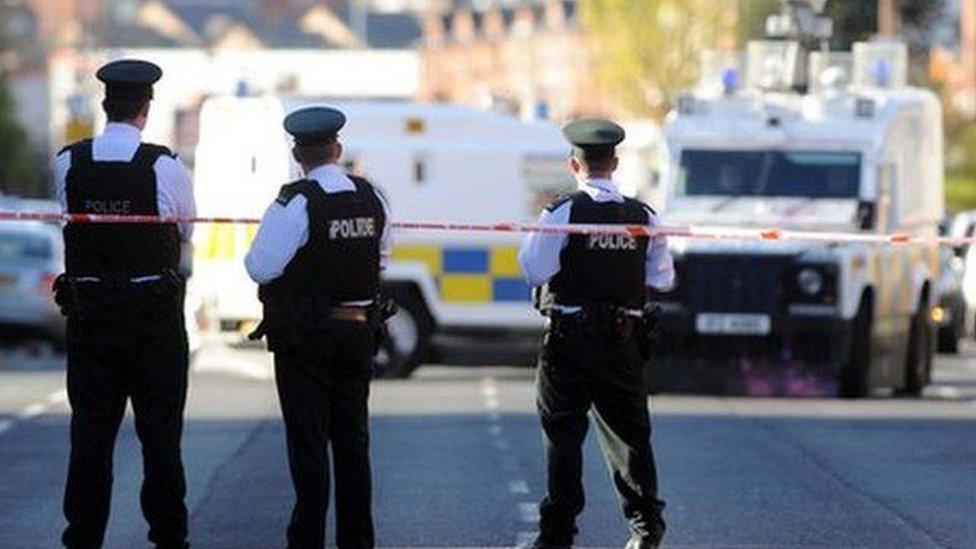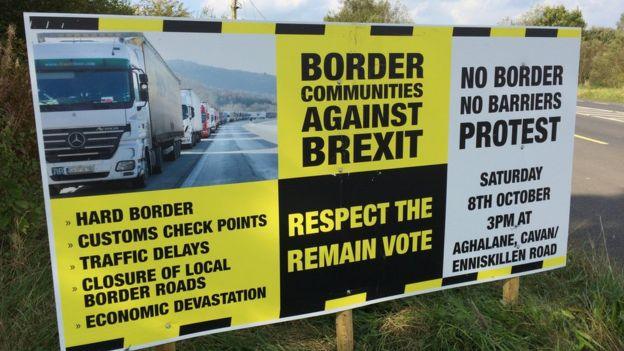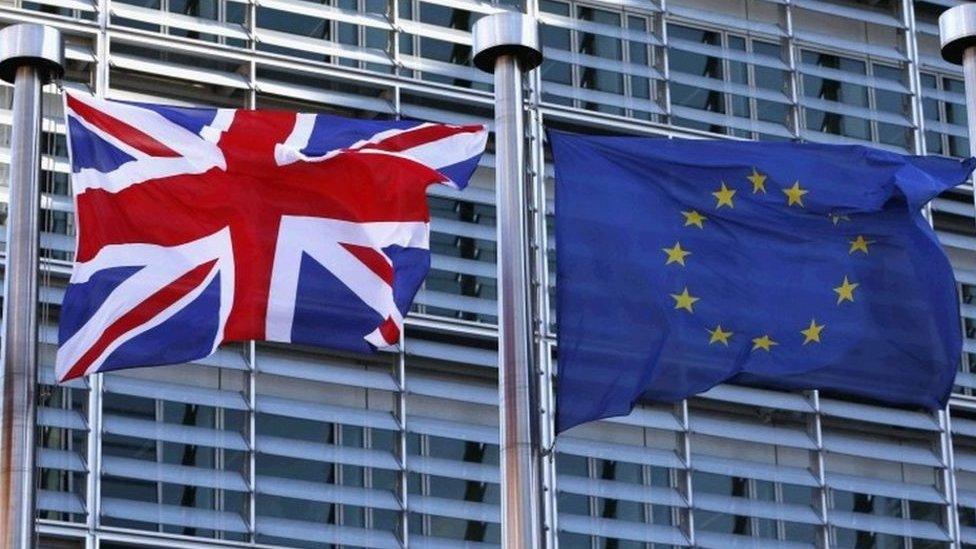Brexit: Dissident republicans could benefit from loss of European Arrest Warrants
- Published

Chief Constable George Hamilton expressed concern about the possible loss of European Arrest Warrants
Dissident republicans could find it easier to avoid prosecution after Brexit, the PSNI has warned.
Chief Constable George Hamilton expressed concern about the possible loss of European Arrest Warrants.
He said there must be international legislation to allow police on both sides of the border to effectively tackle organised crime.
The concerns are outlined in a written submission to a House of Lords inquiry examining the impact of Brexit.
He said uncertainty about policing arrangements between the PSNI and the gardaí (Irish police) after the UK leaves the European Union could "create an impetus for criminals to exploit perceived gaps in collective enforcement".

The Chief Constable said dissident republicans make use of the border to frustrate counter-terrorism investigations
"The effect of the withdrawal of the European Arrest Warrant, without replacement, will be to encourage criminals to believe they can escape justice by fleeing from one jurisdiction to another, which could lead to further abuse of the land border between the United Kingdom and Ireland," he said.
The chief constable outlined a number of "unique" factors and risks created by Northern Ireland's 224-mile porous land border with the Republic.
These included:
- Dissident Republican terrorists use the land border to frustrate counter-terrorism efforts.
- Terrorists, organised crime gangs and volume-crime offenders breach bail and cross the land border to avoid prosecution.
- 43% of Northern Ireland's organised crime gangs have a cross-border dimension.
He said dissident republicans "make extensive use of the border to frustrate pro-active and reactive counter-terrorism investigations".
He added: "Weapons, explosives, personnel and finances move between jurisdictions, in order that attacks can be conducted and the various groups can advance their aims."

The Chief Constable said Brexit would not affect the culture of co-operation between the PSNI and Garda
Chief Constable George Hamilton also said there is "significant interaction and relationships" between organised crime groups operating on both sides of the border.
He also warned that the introduction of border controls would be unlikely to assist "because the myriad of minor roads and private lanes that cross the border could not be effectively policed".
The existence of border controls, he added, would also be likely "to be used by dissident-republican groups as a rationale for continuing violence".
He said Brexit would not adversely affect the "deep and embedded culture of co-operation" between the PSNI and gardaí.
However, he said "there are legislative implications arising from the Brexit decision which require consideration in the interests of our communities on these islands".